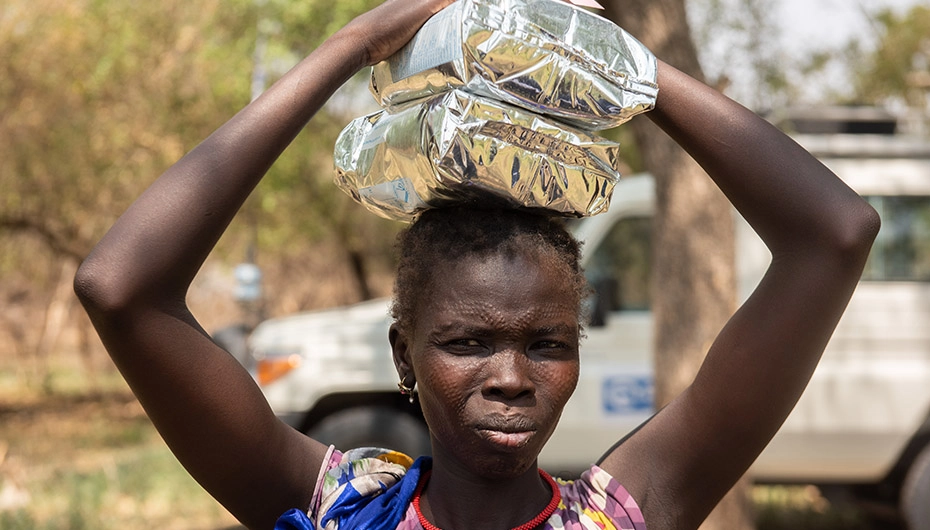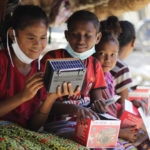Media Centre - Opinion Piece - 24 April 2021
In a single day, millions of people could be saved from famine. Here’s how.

Some 34 million people around the world are a step away from famine, but just one day of global military spending could change that, writes Plan International Australia’s Hayley Cull.
Defence and international development have a lot in common. They’re both matters of life and death.
A few years ago, working with the UK aid sector, I sat down with present and former top brass in the British military to understand how aid spending can support defence aims. We had more in common than you might think.
Defence chiefs, like development workers, spend their days working towards a vision of a safe and peaceful world. Both understand that a holistic approach is needed to address the root causes of conflict. And both play a crucial role in delivering humanitarian assistance to those who need it most.
More specifically, both understand that decisive leadership, including from our political leaders, is crucial in matters of life and death. As one military leader framed it for me, uncomfortably: inaction means leaving children to die.
Right now, we are witnessing a global food crisis of devastating proportions.Some 34 million people are ‘a step away from famine’, according to the UN, with millions more already facing acute levels of hunger.
Driven by conflict, exacerbated by the climate crisis, and inflamed by a global pandemic, this is one of the most dire humanitarian emergencies our world has ever seen. Yet to date, donor countries have funded just five per cent of the UN’s food security appeal for 2021.
The other 95 per cent could be found in a single day.
More than 260 global organisations have come together this week to call for urgent action from world leaders, highlighting that just one day of global military spending equates to $US5.5 billion ($AU7.1 billion), the precise funding shortfall that the UN called for earlier this year to stem the crisis.
In a single day, millions of people could avoid being pushed into famine. In a single day, spiralling conflict and insecurity could be averted. In a single day, a generation of children and young people could restore their hope for the future.
Hunger discriminates. Girls and women make up 70 per cent of the world’s hungry. When food is scarce, girls regularly eat last and least, and as families and communities come under strain, girls are more likely than boys to be taken out of school and to face child marriage, gender-based violence or sexual exploitation.
At Plan International, the charity for girls’ equality, which I work for, we know this all too well. In countries including South Sudan, we are seeing hunger-related deaths and families going entire days without food. Others are making heartbreaking choices, marrying off their daughters early or saving what little food they have for working members of their household.
Yet in times of crisis, we also have our greatest opportunity to promote gender equality. As COVID-19 is showing us everywhere, disruption can lead to transformation, and an opportunity to make our global systems more inclusive, more equitable, and more resilient.
As an Australian NGO, we have developed approaches to improve the quality and potential for lasting social impact while working with UN agencies to save lives.
It starts with centring the voice of young people, especially girls who are most affected, in how we respond to crises.We need leaders to listen to their experiences and their calls for change. We need to centre girls not only in humanitarian response but in efforts to build peace.
And so we return to the military. Conflict is the single biggest driver of hunger globally. And food insecurity also drives further conflict. Stability and security simply cannot prevail where millions of people are fighting for their lives.
It’s hard to imagine a better investment of just a single day’s military spending than to prevent a generation of children and young people from facing catastrophic famine.
Not all political decisions are a matter of life and death. But in this instance, Australia’s upcoming federal budget is a chance to save lives, promote gender equality and build a more peaceful world. It is vital that Australia’s leaders step up, urgently scale up humanitarian funding, and put girls at the heart of our response to crises.
For children facing a food crisis, the cost of inaction is simply too high.
This article first published in SBS
Media contacts


